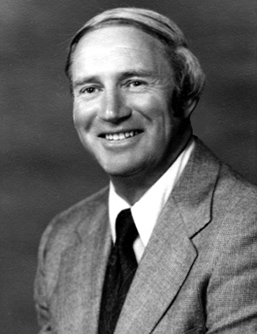
Throughout his 40-year career in medical publishing, Dick Cliggott showed a remarkable ability to recognize the potential of new communication strategies and an unwavering commitment to the value of editorial quality. Just as important, at a critical time in the evolution of the medical publishing industry Dick Cliggott served as a forceful and consistent advocate of business integrity.
After growing up on Cape Cod, serving in the U. S. Army, and graduating from Cornell University, Dick began his career as a district sales manager with Procter & Gamble in 1954. He returned to Cornell for two years as associate director of development, then entered medical publishing when he joined Medical Economics Company in 1959. Over the next decade he rose through the ranks to become vice president and publisher of Hospital Physician.
Dick’s breakthrough moment came when he was one of the first to perceive the need for a new category of journals to serve the specific clinical information needs of primary care physicians. In 1970 he founded Cliggott Publishing Company to purchase Consultant, then a house organ for Smith Kline & French Laboratories. He re-launched it as an independent journal for a controlled circulation of family physicians, general internists, general practitioners, and osteopaths—the “minimass” audience, as it came to be known.
Dick and his associates represented a top-tier sales team and Consultant experienced early success. Still, in what was becoming an ever more crowded market, Dick quickly recognized that successful medical publishers would have to raise the bar for editorial quality and made a long-term commitment to building and supporting a strong and deep editorial team. Editorial excellence became a hallmark of Cliggott Publishing.
Over the next quarter century he continued to be an innovator in the medical publishing field. In addition to launching several new medical journals, he was the originator or an early proponent of a variety of strategies that may seem obvious today but were unusual at the time.
In the early 1970s, he was among the first journal publishers to embrace the opportunities of building a medical education business.
In 1979, he launched the first journal to define its circulation based on high-prescriber profiles.
In the 1980s, he was an early advocate of database communications.
In the 1990s, he was an early investor in online educational services for physicians.
Dick was a tall, imposing figure. Early in life he was an outstanding athlete, attending Cornell on an athletic scholarship. Despite mid-career cardiac problems, he would nevertheless always appear strong and vigorous. He was unfailingly courteous and polite, with a wry sense of humor and an old-school, gentlemanly style that belied – or perhaps accentuated – his ability to sit in a meeting and quickly cut through the nonsense. He was famous for the kindnesses he showed employees at difficult moments in their personal lives. His honesty and integrity are unimpeachable and he earned the respect of countless persons throughout the industry, including clients and competitors.
Integrity was an important concept to him. He was a co-founder and, in 1977, the second president of the Association of Medical Publications (now the Association of Medical Media), seeing it as an important forum to help set higher standards for journal publishers. Within the AMP, the Pharmaceutical Advertising Council (now HMCA), and other industry groups, Dick was a forceful advocate for the value of medical journals and the long-term importance of editorial quality and business integrity. As a long-time employee said, even when times were tough, Dick would never cut corners or compromise the integrity of his journals.
Dick retired in 1998 and passed away in 2007. His legacy lives on through the many people who worked for him and have risen to prominent positions throughout the medical communications industry, and the many friends and colleagues who revere his friendship and memory.